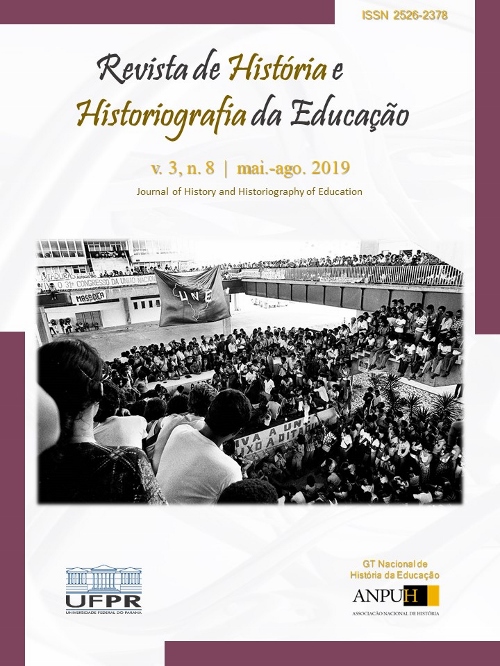Canções populares e o sentimento de missão educadora: Juvenal Galeno no contexto do romantismo brasileiro / Popular songs and the feeling of educational mission: Juvenal Galeno in the context of Brazilian romantism
DOI:
https://doi.org/10.5380/rhhe.v3i8.65538Palavras-chave:
Romantismo, Canção popular, Missão educadora, Intelectuais românticos / Romanticism, Popular song, Educating mission, Romantic intellectualsResumo
A partir do século XVIII, na Europa, muitos intelectuais europeus passaram a alimentar o gosto e o interesse pelas questões populares. O filósofo alemão Johann Gottfried Herder (1744-1803) é considerado um dos expoentes influenciadores de muitos intelectuais, cujas ideias alimentaram o movimento romântico. Contrariando a mentalidade racionalizante iluminista, tais ideias conduziram os adeptos dessa tendência a voltarem-se para os estudos da tradição campesina, buscando no povo e no seu passado glorioso o elemento constituidor da nacionalidade, particularmente na canção e na poesia populares. Aos intelectuais românticos estava esta questão posta como missão educadora. Em terras brasileiras, tal interesse se fortaleceu ainda no período Regencial, alimentado pela lógica do contexto que foi se constituindo logo após a nossa independência política. Deveu-se, sobretudo, à iniciativa dos intelectuais românticos brasileiros, nutridos dos referidos ideais do Romantismo europeu, notadamente francês, moldado pelo Espiritualismo Eclético, e firmes na convicção da missão restauradora de educação da pátria através da instituição de sua história e sua literatura. Em um percurso histórico e compreensivo, intentamos mostrar que as ações do poeta cearense Juvenal Galeno, expressas por suas obras, estavam sintonizadas com a referida causa romântica e assim, definir o mesmo como intelectual com propósito de missão educadora.
* * *
From the 18th century, in Europe, many European intellectuals began to feed the taste and interest in popular issues. The German philosopher Johann Gottfried Herder (1744-1803) is considered one of the influential exponents of many intellectuals, whose ideas fueled the romantic movement. Contrary to the rationalizing Enlightenment mentality, such ideas led the adherents of this tendency to turn to the studies of the peasant tradition, seeking in the people and in their glorious past the element constituting the nationality, particularly in popular song and poetry. To romantic intellectuals this question was posed as an educative mission. In Brazilian lands, this interest was strengthened even in the Regencial period, fueled by the logic of the context that was becoming soon after our political independence. It was mainly due to the initiative of the Brazilian Romantic intellectuals, nourished by the ideals of European Romanticism, notably French, shaped by Eclectic Spiritualism, and firm in the conviction of the restorative mission of education of the motherland through the institution of its history and its literature. In a historical and comprehensive way, we tried to show that the actions of the Ceará poet Juvenal Galeno, expressed by his works, were in tune with the aforementioned romantic cause and thus, to define the same as intellectual with purpose of educative mission.




